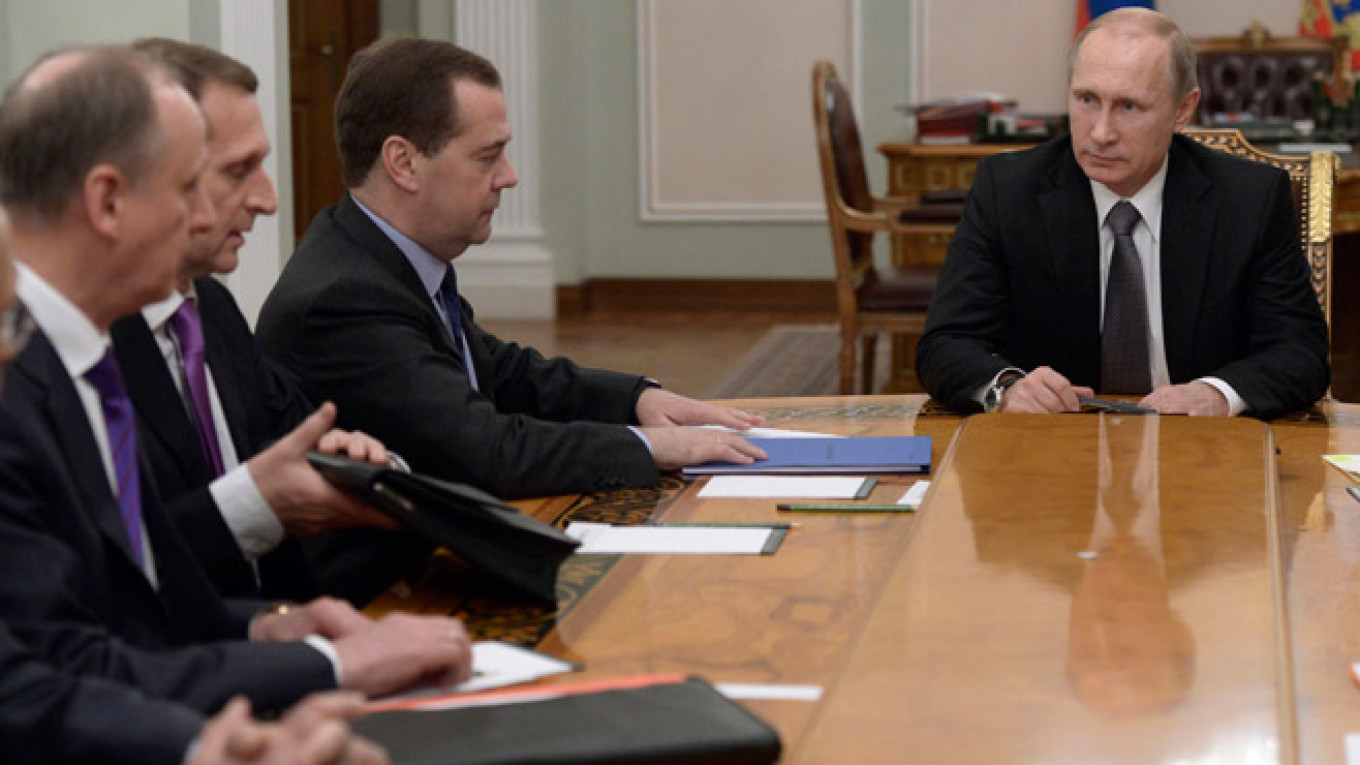As European Union foreign ministers meet this week to discuss possible ways forward with Russia to resolve the conflict in Ukraine, they may have to contemplate the unthinkable: Moscow may not be interested in a settlement, dragging the conflict on for years.
A sensible paper from the EU's high representative of the union for foreign affairs proposes a cautious re-engagement with Russia.
It provides Moscow with a face-saving exit by putting aside the "problem of Crimea," which cannot be resolved soon, leaving in place its limited sanctions, while offering immediate relief of more onerous sanctions were Moscow to implement fully the Minsk Protocol, ending its military support for the separatists in the Donbass.
"Exchanging Crimea for Donbass" while lifting the most painful sanctions strangling Russia's economy would be a big win for the Kremlin. Former Russian Prime Minister Yevgeny Primakov advises Putin to seize the deal. Yet, he is not taking it.
Moscow is not exactly rushing to implement Article 4 of the Minsk Protocol that requires it to withdraw its forces from Ukraine and return the border with Russia to Ukrainian control. Last December it blocked the Organization for Security and Cooperation in Europe's plan for more extensive border monitoring. Closing the border would have restored Ukrainian sovereignty and ended resupply and infiltration of fighters from Russia, but would have quickly folded the separatist "republics."
This, however, is not Putin's goal in Ukraine. He wants to leverage Russia's military support for the separatists to impose on Kiev a Bosnia-style constitutional arrangement that would grant the "republics," a special status within Ukraine with veto power over its security policy.
Hence, he doubles down on military aid to the separatists, to push further against the line of control.
Continued fighting gives Putin leverage with Europe that he hopes to corral into forcing Kiev to accept Russia's demands for a "constitutional reform." Any settlement ends this leverage.
The EU's choice is unappetizing: grant Putin's wish by twisting Ukrainian President Petro Poroshenko's arms to "Bosnify" his country, freeze the conflict indefinitely through a stable cease-fire enforced by Moscow in exchange for lifting some sanctions, or keep and even strengthen the sanctions regime to effect a change in Putin's objectives.
I would put money on the second option.
Vladimir Frolov is president of LEFF Group, a government relations and PR company.
A Message from The Moscow Times:
Dear readers,
We are facing unprecedented challenges. Russia's Prosecutor General's Office has designated The Moscow Times as an "undesirable" organization, criminalizing our work and putting our staff at risk of prosecution. This follows our earlier unjust labeling as a "foreign agent."
These actions are direct attempts to silence independent journalism in Russia. The authorities claim our work "discredits the decisions of the Russian leadership." We see things differently: we strive to provide accurate, unbiased reporting on Russia.
We, the journalists of The Moscow Times, refuse to be silenced. But to continue our work, we need your help.
Your support, no matter how small, makes a world of difference. If you can, please support us monthly starting from just $2. It's quick to set up, and every contribution makes a significant impact.
By supporting The Moscow Times, you're defending open, independent journalism in the face of repression. Thank you for standing with us.
Remind me later.


